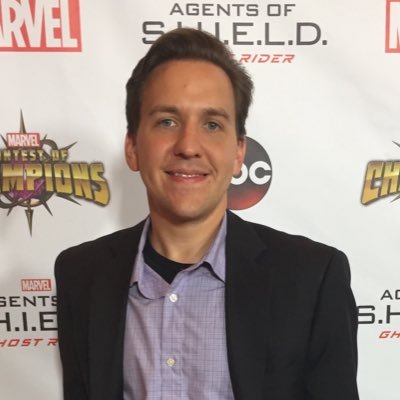By Karlie Shoffner
Writer and editor Marc Sumerak will be visiting BGSU and giving a presentation on Monday, March 27. He creates content for some of the most well-known franchises including Marvel and Star Wars. His work has appeared across various media platforms including books, comic books, and video games. Sumerak graduated from BGSU in 2000 with a BFA in creative writing. Following is an interview with the writer for those who may be interested in knowing what it’s like to work in such a unique industry.

Q: What sparked your interest in creating comic books?
A: Comic books were my favorite form of fiction growing up. Their unique combination of fantastical storytelling and bold visuals were a huge influence on the writer I would eventually become. Once I realized that writing comics was an actual job, it made perfect sense that it would become the primary career path I would pursue.
Q: Which project are you the proudest of? Why?
A: It was a real honor to write the script and story for MARVEL ULTIMATE ALLIANCE 3: THE BLACK ORDER, a video game released for the Nintendo Switch in 2019. Getting to take my years of comic book and game writing experience and bring it to such a beloved franchise was an experience I’ll always hold dear.
Q: What was one of your most difficult projects? Why was it a challenge?
A: Every project has its challenges. Writing one of my most recent books, MARVEL ANATOMY: A SCIENTIFIC STUDY OF THE SUPERHUMAN, was a particularly painstaking process, as it required huge amounts of research—both of real world human anatomy and of the Marvel characters and their powers—to make sure the theories we presented were accurate, believable, and consistent with what had been previously established.
Q: What is the process for creating a comic book story?
A: The process can vary depending on the creative team, but usually, a writer composes a script that includes all of the information the artists will need to bring the story to life. Once the script is complete, a penciler draws each page, an inker embellishes them, and a colorist takes everything to the next level. Once the letterer works their magic, adding in word balloons and sound effects, you’ve got a single finished comic book page. And the process repeats until a book is complete and ready to print.
Q: How is writing comic books different than writing in other mediums?
A: No matter the medium, we all want to create good stories. But the biggest difference writing for comics is the format. When you’re writing fiction, the descriptions and the dialogue are all mixed together in the body of the text. In comic scripts, we separate those out, providing detailed descriptions for the artists to draw alongside blocks of dialogue that will eventually go into the word balloons on the finished page. It’s how we break down each and every panel image within the comic to make sure our stories are being told in a clear and concise manner. Comic writers also have to be very conscious of story pacing, making sure that all the action fits properly on a page once it is drawn. In a novel, a chapter is however long you need it to be. In a comic, you only have a certain number of pages and a certain number of panels on each page. So economy of storytelling is always key.
Q: What sort of impact has the massive success of the Marvel Cinematic Universe had on your industry?
A: When I started working at Marvel, it was long before the Avengers were a household name. To see the entire world finally getting a chance to enjoy these characters that I’ve loved my entire life is extremely gratifying. And to know that characters and stories I’ve had my hands on are now multi-billion dollar brands is a bit mind-boggling. All that success hasn’t changed how the comic book industry runs that much, but it has certainly opened the doors to new creators and countless new readers, which is always a good thing.
Q: Which franchise is your favorite to write for? Why?
A: The Marvel Universe will always be my home base, but it has been a lot of fun to visit a galaxy far, far away as well. The original Star Wars trilogy was such a huge part of my formative years, so getting to play in that sandbox was always a dream of mine. The fact that I’m currently in the middle of working on the manuscript for my tenth Star Wars book is honestly a bit hard to believe.
Q: Which franchise would you drop everything to write for if asked? Why?
A: The Muppets. Jim Henson is right up there with Stan Lee and George Lucas as one of the creators that shaped who I am today, both as a writer and as a person. The humor and the heart in Muppet projects is unparalleled, so getting a chance to contribute to their world in any way would be the most sensational, inspirational, celebrational thing ever.
Q: What advice do you have for someone who may be interested in this field?
A: No matter what you are planning to write, whether its comic books, video games, or poetry, study your craft. Immerse yourself in the very best—and the very worst—examples you can find and figure out what makes them good or bad. If you understand what makes a story work at a fundamental level, you significantly lower your chances of creating something that doesn’t.
Sumerak will be visiting BGSU on Monday, March 27. He will host a presentation at 11:00am at University Hall in room 307. This presentation will be open to the campus community and some invited public guests. Following the presentation is a book sale and signing with the writer. Later that day, Sumerak will also host a Q&A, meet and great, and book sale and signing at Prout Chapel at 4:30pm. For more information about the author, you can visit his website sumerak.com.
